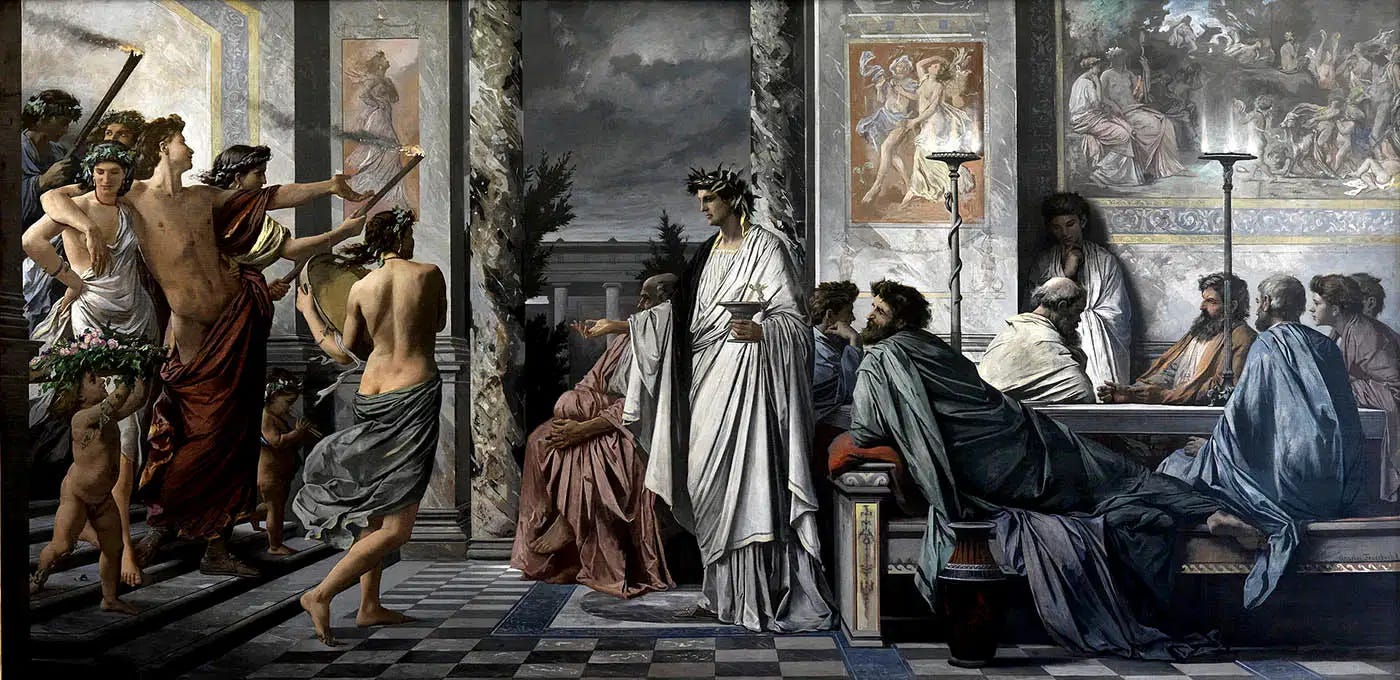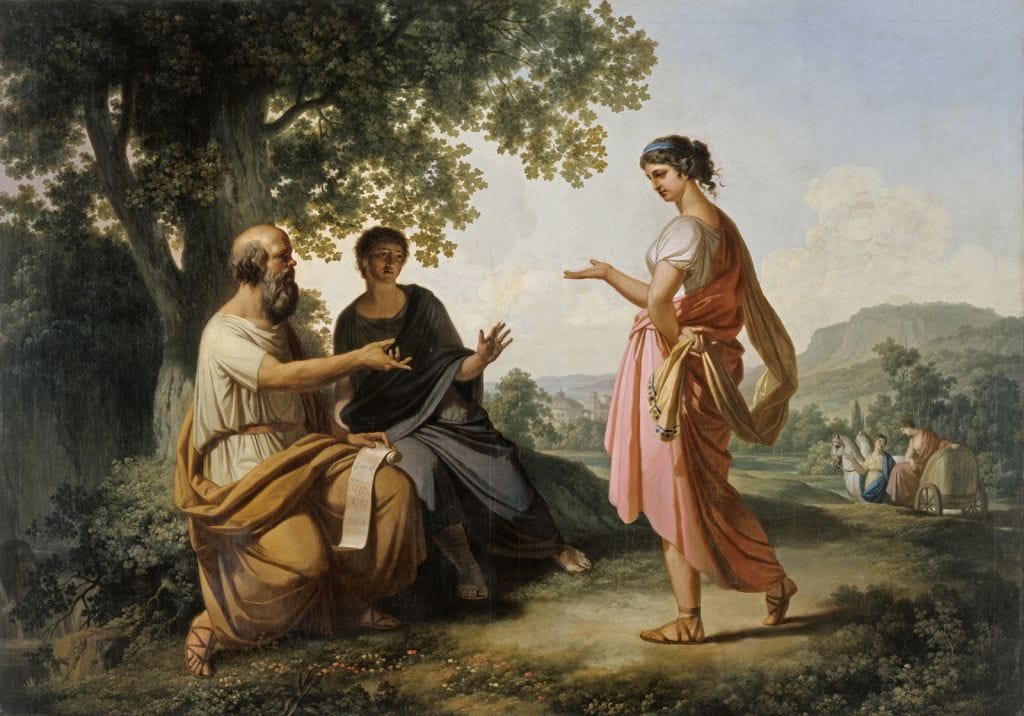Socrates on Beauty and Goodness: A Flawed Discourse on Love
This week, I found myself reflecting on my college philosophy classes, especially a moment when my professor explored the intricate relationship between beauty, goodness, and love through Socratic philosophy. It’s truly remarkable how these ancient ideas still spark thought and debate today.
Socratic discourse is brought to life in Plato’s writings. Without Plato, much of Socratic thought would be lost. Plato’s texts provide access to Socratic insights on morality, love, and the human experience. The most significant discussions of Socratic philosophy regarding love can be found in Plato’s Phaedrus and Symposium. In these texts, Socrates presents a complex vision of love that intertwines beauty and goodness, prompting us to question the foundations of our affections, and the motives behind our pursuit of love.
Fun fact: Symposiums were a key part of ancient Greek culture, serving as lively gatherings where thinkers like Socrates could dive into deep conversations—all while enjoying a few drinks!
Plato’s Symposium, Anselm Feuerbach (1869)
Beauty as the Essence of Love
In the dialogues of Phaedrus and Symposium, Socrates discusses the concept of beauty, using the term kallos, which can be translated from its original Greek not just as “beautiful”, but also as “good,” “noble,” or “fine.” The duality of this terminology becomes evident as Socrates describes love, not as a simple pursuit of beauty, but as an intricate desire rooted in a recognition of the good. In this framework, Socrates associates beauty with goodness. He claims that when we encounter beauty, we are reminded of a higher ideal that we, in our imperfect state, strive to embody, and we are drawn to this ideal in the pursuit of love.
In the Phaedrus, Socrates is engaged in a lively debate with a wise woman named Diotima, who enlightens him on the true nature of love. She argues that love is a multifaceted concept that goes beyond mere appreciation of beauty. She presents love as a ladder of ascent, starting from the appreciation of individual beauty, moving to the beauty of the soul, and ultimately culminating in the love of an abstract form, or a perfect ideal. This journey emphasizes love as a driving force toward personal and spiritual growth, guiding one toward wisdom and the divine.
Socrates with a Disciple and Diotima, Franc Kavčič (circa 1810)
Socrates and Diotima’s exchange seems to convey that love is deeply intertwined with a desire for what we feel we lack, creating a complicated dynamic between the lover and the beloved. This irony sheds light on the unique nature of Ancient Greek pederastic relationships, where admiration and beauty play central roles. In these relationships, the lover, most often an older man, typically offers admiration and emotional depth, while the beloved, a younger man, embodies youth and beauty—qualities that the lover may feel are missing in their own life. This exchange of complementary attributes not only highlights the complexities of love but perhaps also reflects a longing for balance in romantic relationships.
Symposium Scene (circa 480 B.C.)
The Pursuit of Happiness Through Beauty
Socrates presents love as a yearning for beauty that ignites a spark of realization: lovers, often perceived as mad, reshape their lives in the quest for a beloved that is beautiful. Socrates’s insistence that love centers on beauty raises an intriguing dilemma with real-life implications.
I believe that while beauty represents an ideal, and may suggest goodness, it may not be enough to sustain love. This aligns with Diotima’s teachings, which guide Socrates through the evolution of love—from appreciating beauty to fulfilling the soul. The real challenge is recognizing that although the pursuit of beauty can present a vision of perfection, it doesn’t guarantee a deep understanding of ourselves or those we love.
The Pitfalls of Beauty-Centric Love
Socrates’s examination of love suggests that it can be transactional, leading to a key critique: when love is seen only through the lens of self-interest, it risks becoming selfish. This self-centered view overlooks the altruistic nature of love. In the Phaedrus, one character argues that those who are obsessed with an ideal love often neglect their own well-being, making them unreliable partners. Thus, the pursuit of love should focus on self-love and love for others, rather than just the love of beauty.
True love, as Diotima suggested to Socrates in the Symposium, is about creating something beautiful—whether in body or mind—that contributes to our immortality. This higher form of love transcends mere attraction to beauty; it is a commitment to virtue and self-betterment.
Beyond Beauty
Ultimately, Socratic philosophy encourages us to reflect on our understanding of love. From this reflection, I gather that while beauty can spark love, it’s the pursuit of personal and mutual growth that perfects the soul and helps us reach the ideals we seek. This perspective allows us to appreciate the complexities of love and motivates us to cultivate deeper, more meaningful connections with others.
Ironically, Socrates met his end at the hands of the very people of Athens he sought to enlighten, accused of corrupting their youth. In the powerful depiction known as The Death of Socrates, we see the philosopher in his cell, engaging with his sorrowful followers as he contemplates the immortality of the soul, moments before he drinks the hemlock from a goblet.





